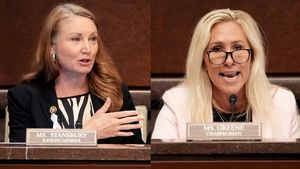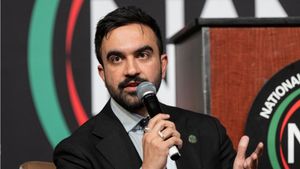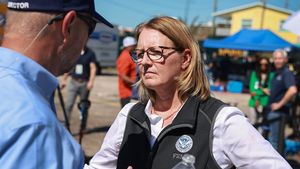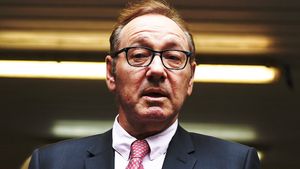So, what is Title 42? The policy gives the federal government the authority to close certain access points into the United States in order to keep out communicable diseases. It was enacted by the Trump Administration in 2020 in response to the Covid-19 pandemic outbreak, and was enacted once before in 1929 during a meningitis outbreak to keep out ships from China and the Philippines.
Trump's administration has been widely criticized for using the policy to turn away asylum seekers and to deport migrants more quickly. Even as Covid-19 restrictions were lifted, Republicans fought to keep Title 42 in place.
Last week, the World Health Organization determined that Covid-19 pandemic is no longer a global health emergency, meaning that Title 42 can reasonably be lifted. It does not equate an "open" or less secure border — it simply reverts immigration law to the policies in place before the pandemic.
For immigrants, Title 42's end lessens the threat of legal or criminal consequences for entering the country. For example, they will no longer face two years in prison for re-entering the country after being previously deported.
While this will likely lead to an influx of immigrants in the following months, nonprofits and other shelters in cities among the United States-Mexico border, as well as local and state governments, have long been preparing for the policy's ending, according to Department of Homeland Security Secretary Alejandro Mayorkas
“I think that there is no question that this is going to be extremely challenging. I do not want to understate the severity of the challenge that we expect to encounter," Mayorkas said Friday during a visit to the Rio Grande Valley. "We have a plan. We are executing on that plan.”
- Mexican Migrant Workers to Receive $6.5 Million in Unpaid Wages From US Government ›
- What Is Title 42, and What Happens Now That the Supreme Court Has Stepped In? ›
- Biden's Asylum Limits Endanger Migrants | AdvocateChannel.com ›
- 8-Year-Old Girl Dies While in US Border Patrol Custody | AdvocateChannel.com ›
- Undocumented Immigrants Need Protections From the White House | AdvocateChannel.com ›
- Border Communities in Disarray as Title 42 Ends ›



















































